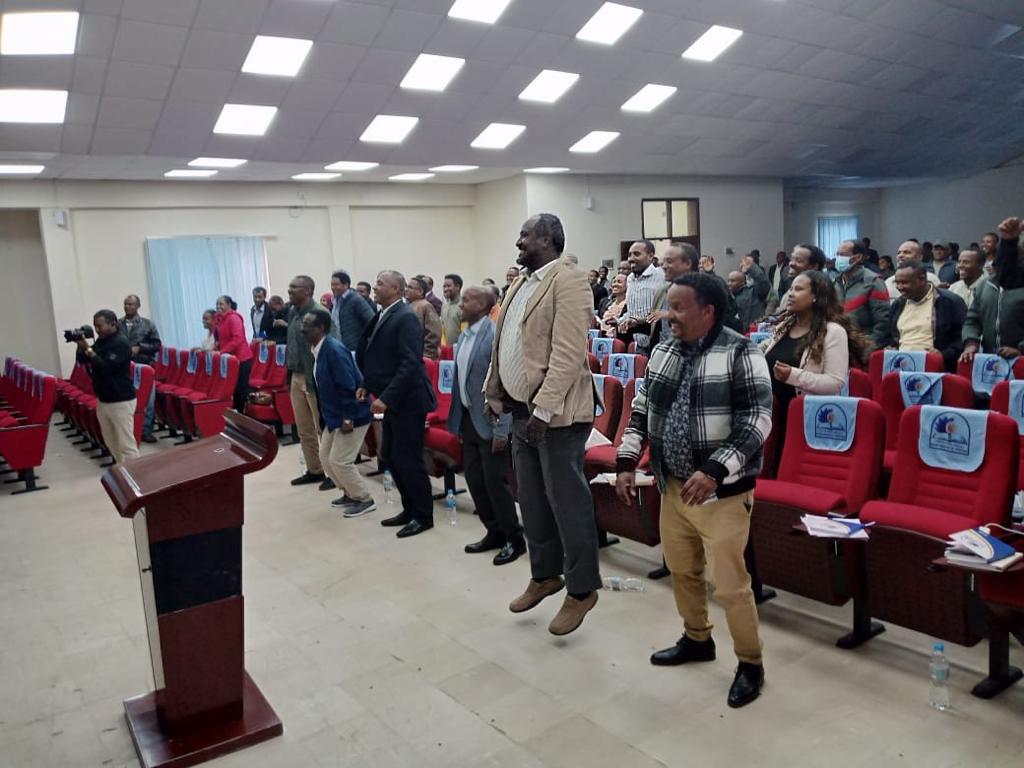This website uses cookies so that we can provide you with the best user experience possible. Cookie information is stored in your browser and performs functions such as recognising you when you return to our website and helping our team to understand which sections of the website you find most interesting and useful.
Geneva Global is part of Global Impact Ventures

Education Inititives > education articles
Dr. Joshua Muskin Delivers a Seminar at Kotebe University of Education in Ethiopia
“The instructional methods we use are the exact same ones that Ethiopia has been training its teachers to use for decades. But Speed School teachers actually use these while their colleagues in conventional classrooms right next door do not. Why not?”
On 13 March, Joshua Muskin, Senior Director at Geneva Global, made an invited presentation to the full faculty of Kotebe University, Ethiopia’s lead tertiary institution of education. The title was “Preparing Teachers to Deliver Ethiopia’s New Competency-Based Curriculum.” Introduced into classrooms at the start of the current school year, the competency-based curriculum aspires to move instruction beyond learning content to pass exams to help students acquire the practical skills and personal competencies they will need to pass successfully into life and livelihood. Central to Muskin’s message was the warning that achieving these results will only happen if the country simultaneously trains its teachers to use competency-based pedagogy – e.g., learner-centered methods – when delivering their lessons. “Teachers don’t learn these methods,” Muskin quipped, “by sitting through a two-hour lecture on learner-centered instruction.”
He explained that Geneva Global has been working intimately with competency-based education for the past twelve years by implementing the Speed School program. This accelerated education program delivers a condensed curriculum using activity-based learning methods to produce holistic learning – learning to know, to do, and to be and be together – among its students. “The instructional methods we use,” he continued, “are the exact same ones that Ethiopia has been training its teachers to use for decades. But Speed School teachers actually use these while their colleagues in conventional classrooms right next door do not. Why not?” One essential explanation traces to how Ethiopia trains its teachers: predominantly by lecture. Muskin said this must end, that teachers must learn the way the system expects them to teach their students.
The Kotebe presentation was just one activity of many that Geneva Global has taken and is planning for the future to support a tectonic shift in how Ethiopia trains its future teachers and re-trains its current ones. The new competency-based curriculum offers a neat inflection point to make this transition. The recent national high school exam results, which just 3.3% of students passed, offers an urgent reason to inflect now.
Geneva Global’s role in supporting the transition in teacher training began officially in 2022. Then, the Ministry of Education instructed all 37 of the country’s colleges of teacher education to incorporate the Speed School model and methods into their teacher training curriculum. Asked first by the Oromia Regional Education Bureau to train and support its college deans and other teacher training leaders to support this effort, Geneva Global has now embarked on a similar journey with the regional education bureaus of Amhara, Sidama, and the Southern Nations, Nationalities, and Peoples Region. Following the presentation, Kotebe University of Education expressed its desire that Geneva Global help it as well in transforming its training of teachers from an approach that is almost purely theoretical to one that is predominantly practical, both in what its instructors teach to future teachers and how they deliver their lessons. At the start of this effort, Geneva Global is eager to share much more as the work progresses.
